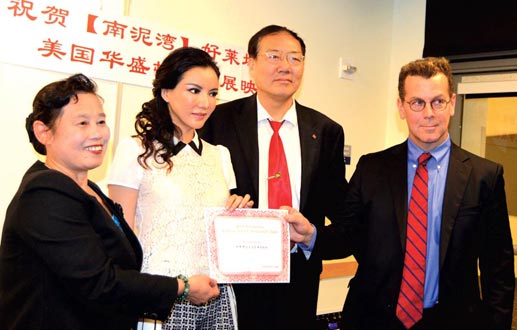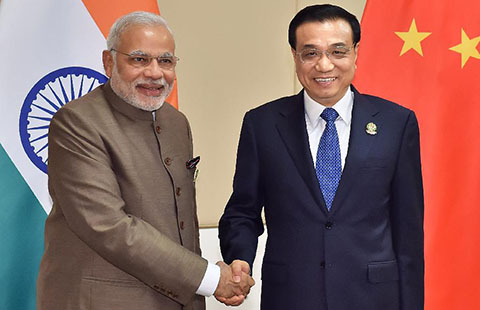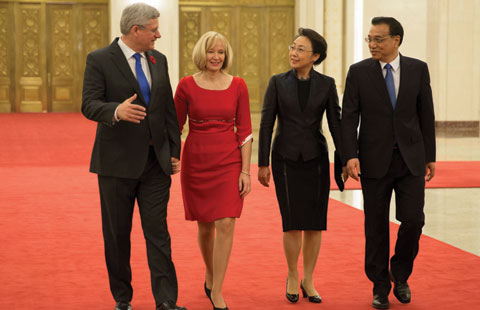The Waldorf's hefty price tag
Updated: 2014-11-14 07:10
By Liu Lian(China Daily USA)
|
||||||||
Similarities with Japanese
"There are a lot of similarities between what's happening for Chinese investors and what happened for the Japanese in late 1990s," said Jonathan J. Miller, president and CEO of Miller Samuel Inc, a New York-based real estate consulting firm. "There's a similar feel to that now, although I don't know the difference on individual bases."
"One of my favorite saying is by Mark Twain. 'History does not repeat itself, but it often rhymes,'" said Miller.
With volatility in financial market challenging economic conditions worldwide, the New York market has become a global safe haven for investors, said Miller.
"Whether it is local, meaning domestic or foreign buyers of hard assets, everybody is scrambling for the highest quality assets they can find," he said. "I don't think it's unique to foreign investors. The foreign investor element in terms of participating in the market and paying premiums is greatly exaggerated."
Price development has been so rapid in Manhattan over the last two decades, said Hanemann. "If you go back 20 or 30 years, if you would have told someone what an office tower these days goes in Manhattan, they would have said you are crazy," he said.
"Anbang sells life insurance policies. The liabilities will persist for decades. If you buy Anbang insurance today, as you probably will have a life expectancy maybe over 70 years, Anbang will be prepared to have assets to pay for that liability very far in the future," said Margolis. "Naturally there is a horizon for investing, and it will also be very long. It makes sense for them to be investing in long term assets."
Anbang entered into a long-term management contract with Hilton that allows it to operate the Waldorf for the next 100 years.
"That's a reflection of a very long-term investing horizon," said Margolis, "in that background, what may be viewed as a premium paid for trophy properties may not be that huge a premium if it is being amortized over decades."
"There are foreign investors that do hold those properties for a long period of time. They are not buying and trading them right away. You are more than likely able to extract values not only on the appreciations, but also under the recurrent revenue measures as well," said Clinton.
"Another question to ask is what the alternatives are for the Chinese investors," said Ferreira, "perhaps, the alternative is to construct another hotel in China? From a portfolio perspective, maybe they are willing to pay a little bit more in order to get the safety of the Manhattan market."
In Global Housing Watching released in October, the International Monetary Fund reported that in large cities in China, house prices showed signs of overvaluation despite government measures to restrict speculative demand, whereas many smaller cities experienced oversupply.
"By some measures, year-on-year, 2014 over 2013, there's been a significant drop of more than 20 percent in the total dollar invested in the Chinese real estate market whereas in the US, there's an increase," said Margolis.
David Colen, managing director at Newmark Grubb Knight Frank, said yields in New York for stabilized, well performing assets ranged from 4 percent to 4.5 percent depending on asset class, whereas yields in other mature markets such as London, Hong Kong and Singapore may be more compressed.
"There's also the question of domestic uncertainly, including things that may not directly affect the financial market but affect it indirectly, such as the extent of the well-known anti-corruption campaign, food safety issues and environmental challenges," said Margolis.
All those factors are playing against the background of the central government encouraging outbound investments. In the insurance industry, since 2012, the China Insurance Regulatory Commission (CIRC) has increased investment options for Chinese insurers. They are allowed to trade index futures and derivatives in the domestic market and bans on investing abroad have been lifted.
Starting in February, the CIRC allowed Chinese insurance companies to invest up to 30 percent from 20 percent of their total assets to real estate. The ceiling for overseas investment also was increased to 15 percent of total assets.
Ping An, China's second-largest insurer, bought the Lloyd's Building in London in July 2013 for $388 million (260 million pounds). In June, China Life, the world's biggest insurer by market capitalization, took a 70 percent stake with Qatar Holding, a sovereign wealth-fund subsidiary, and paid $1.4 billion (795 million pounds) to acquire 10 Upper Bank Street in London from Canary Wharf Group.
- 'Thousands stand to benefit' from Sino-US visa accord
- World's tallest man meets world's shortest man
- Across Americas over the week (Nov 7- Nov 13)
- S. Korea to hold drill in islets disputed with Japan: Seoul
- China, Pakistan pledge to strengthen air force cooperation
- B20 urges G20 to make bold commitments for growth, jobs

 Across Americas over the week (Nov 7- Nov 13)
Across Americas over the week (Nov 7- Nov 13)
 Baby steps for nation in its golf infancy
Baby steps for nation in its golf infancy
 Xi's wife takes Mexican first lady to PLA Academy of Arts
Xi's wife takes Mexican first lady to PLA Academy of Arts
 World's tallest man meets world's shortest man
World's tallest man meets world's shortest man
 Premier Li pledges to strengthen cooperation with India
Premier Li pledges to strengthen cooperation with India
 Lang Lang honored with German award
Lang Lang honored with German award
 Airshow China soars to success in Zhuhai
Airshow China soars to success in Zhuhai
 Across Canada Nov 14
Across Canada Nov 14
Most Viewed
Editor's Picks

|

|

|

|

|

|
Today's Top News
'Thousands stand to benefit' from Sino-US visa accord
Energy tops list of deals with Myanmar
Xi starts busy schedule with G20
US spying scheme targets Americans' cellphones
The Waldorf's hefty price tag
China, US to build milk-powder plant in Kansas
China, ASEAN set goal for upgrading FTA
Country pushes for code at South China Sea
US Weekly

|

|








